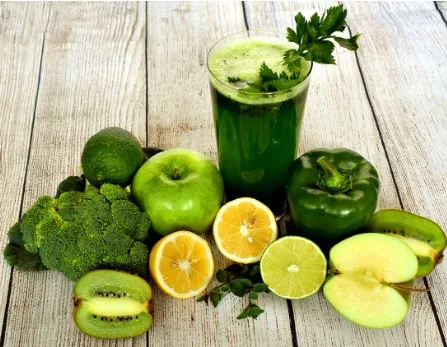Detoxification, or “detox” for short, has become a popular practice in recent years as people strive to cleanse their bodies of toxins and achieve overall well-being. Although there are various methods and approaches to detoxification, it is important to understand the essential ingredients that contribute to a successful detox. In this blog post, we’ll dig into the latest scientific studies and expert opinion to identify these essential ingredients, explore their benefits, provide examples of natural foods and supplements that contain them, and address any potential drawbacks or limitations.
Antioxidants:
Antioxidants play a crucial role in detoxification by neutralizing harmful free radicals in our body. Free radicals are unstable molecules that can cause cell damage. By consuming foods rich in antioxidants, we enhance our body’s natural ability to eliminate toxins. Some powerful sources of antioxidants include berries (blueberries, raspberries, strawberries), green tea, dark chocolate, and spices like cinnamon and turmeric.

Fiber:
Dietary fiber is essential for the elimination of toxins from our body, especially from the digestive system. It promotes regular bowel movements and prevents constipation, thus effectively eliminating waste. Fiber-rich foods include whole grains, legumes, fruits, vegetables, and nuts. A popular fiber supplement is psyllium husk, derived from the seeds of the Plantago ovata plant.
Cruciferous vegetables:
Cruciferous vegetables, such as broccoli, kale, Brussels sprouts and cauliflower, contain compounds called glucosinolates. These compounds aid in detoxification by activating enzymes that support the body’s natural detoxification pathways, particularly liver detoxification. They also provide essential vitamins, minerals and dietary fiber, enhancing the overall detoxification process.
Foods high in sulfur:
Sulfur is a mineral that plays an essential role in detoxification processes, especially in the liver. Sulfur-rich foods, such as garlic, onions, and cabbage, can support the production of glutathione, a powerful antioxidant that helps flush toxins from the body. Additionally, foods high in sulfur can stimulate the liver to produce enzymes that aid in detoxification.

Probiotics:
Ensuring a healthy gut is essential for effective detoxification. Probiotics, beneficial bacteria that reside in our digestive system, help maintain a balanced intestinal flora and promote optimal digestion and detoxification. Fermented foods like yogurt, sauerkraut, kefir, and kimchi are great sources of probiotics. Probiotic supplements are also available, containing various strains of beneficial bacteria.
- If the above ingredients are recognized for their detoxifying properties, it is crucial to approach the detox process with balance and to consult health professionals. Additionally, it should be noted that extreme or prolonged detoxification protocols can have potential downsides. Rapid weight loss can occur, but it is mainly due to water loss and can lead to nutritional deficiencies and other health complications.
- It is important to remember that our body has built-in detoxification systems, primarily the liver and kidneys, which work around the clock to eliminate toxins. By incorporating the essential ingredients mentioned above into a balanced diet, we can support and enhance our body’s natural detoxification processes.
In conclusion, a successful detox includes essential ingredients such as antioxidants, fiber, cruciferous vegetables, sulfur-rich foods, and probiotics. By including these ingredients in our diet, we can optimize our body’s natural detoxifying abilities. However, it is crucial to approach detox with caution, seeking advice from medical professionals to avoid potential pitfalls and ensure a safe and effective detox experience.

